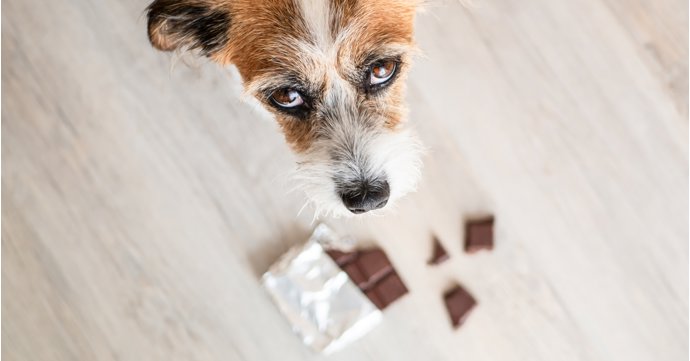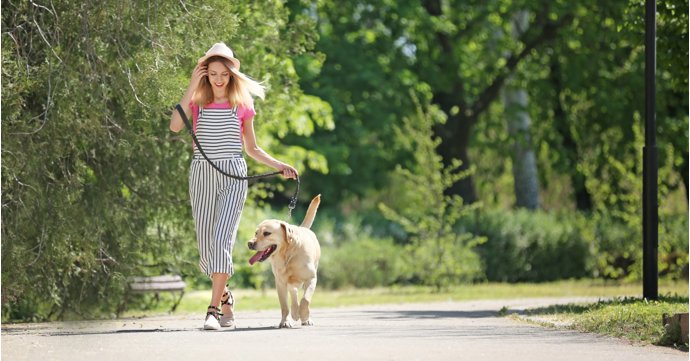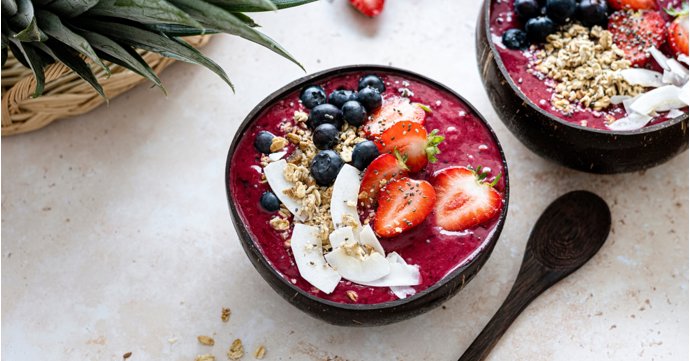Veterinarians and founders of Regency Vets, Olivia Crowe and Alex Hewett, are put to the test by SoGlos, answering the most-asked questions on the internet by pet owners — from what to do the night before surgery, to why your dog just can't keep his eyes off you, they answer them all...
My dog kicks around in their sleep, do pets have dreams?
There is actually evidence to demonstrate that dogs go through similar sleep cycles to humans!
As we know, dreaming happens during deep slow-wave sleep, and REM (rapid eye movement) sleep and brain wave activity whilst in REM is very similar in dogs and people. Though we'll never know exactly what they're dreaming about, we'd like to think it's all chasing balls, their favourite food and their loving owners.
Are dogs colour blind?
A dog's vision is very different to ours — the cone cells in the retina (the back of the eye) allow us to detect different colours. Humans have three different types of cone cells, whereas dogs only have two.
So as a result, dogs aren't totally colour blind, they just don't see colour as intensely as we do; but unless you're teaching dogs to choose objects based on colour, it won't affect their day-to-day life.
Why does my dog keep staring at me?
It's usually because they want something. Dogs are habitual creatures, so they want to understand what you're up to, so they can understand what you're going to do next. For example, if we go to put our shoes on, does that mean we're going walkies or leaving them behind?
It can also be just a sign of affection because they love you!
Side note: your dog looks at you when they poo because they're vulnerable and look to you for protection — so try to maintain that eye contact, no matter how awkward it can be...
What should I do the day before my pet goes into surgery?
First thing, don't take your dog out on a really soggy, muddy walk just before any procedure. It can take just as long to clean them up beforehand as the actual surgery — but do try to make sure they've gone to the toilet, for both a wee and a poo if possible.
Pets can have access to water right up until they come into the vets, but an evening meal is recommended at around 10pm the night before surgery, as sitting with an empty stomach until the procedure the next day can make them feel a bit sick.
Finally, vet visits can be stressful, so make sure to give them lots of cuddles!
I've been advised to help my pet lose weight, any healthy tips?
Obesity is a massive problem in our pets as it significantly shortens their lifespans. The first step is to be able to recognise that your pet is overweight — vets can help with this by teaching how to body condition score your pet.
When done safely, weight loss should be a gradual process and you'll want to establish a realistic target weight, then you can work out exactly how much food is needed to maintain that weight. If there is a reasonable amount of weight that needs to be lost, a weight management diet can be used short-term to get the ball rolling.
Cutting out calorie rich treats is a big factor — feeding dental and raw hide chews every day can be the equivalent to us having a whole pack of doughnuts on top of our meals!
My pet hates travelling in the car, what can I do to help keep them calm?
Legally, your pet must be restrained whilst in the car. This can either mean they are in the boot with a pet-guard so they can't jump out; safely put away in a crate; or strapped into the back seat using a harness.
It's important to introduce your pet to the car as early as possible, start by getting them to jump into the car and giving them a treat without even starting the engine.
Once they're happy jumping into the car, start turning on the engine and giving them a treat when you start moving, so that they can associate moving with a positive reward — be sure to take regular breaks on long journeys, so pets don't become agitated or distressed by not being able to go to the toilet or have a drink.
Vets can also prescribe medication to help pets who suffer with travel sickness, too, if your dog drools or vomits on longer journeys.
What should I be feeding my rabbit or guinea pig?
Rabbits and guinea pigs are designed to be out eating vegetation in the fields and, sadly, their most common reason for being admitted to the vets are for dental issues or gut stasis, because rabbits have HUGE digestive tracts, so they need lots of roughage to keep everything moving.
The optimum diet is 80 to 85 per cent grass or hay, 10 per cent green vegetables and five per cent nuggets.
One handful of green vegetables, such as cucumber, romaine lettuce or peppers, as well as weeds and herbs can be given twice daily and treats like carrots, should be occasional. An egg cup of dry food, not muesli, is the maximum amount to be offered each day.
My cat keeps kneading on my lap, is this okay?
This is a normal behaviour for kittens as they do this when they're still feeding from their mum, to stimulate milk production.
It's not fully understood why this continues into adulthood for some cats, but theories suggest that it creates similar feel-good hormones as well as being a way for them to show affection — so it's definitely okay!
I need to get my pet neutered, when is the best time to do it?
For cats, we recommend neutering from around four to five months for both males and females.
Whereas you should usually wait until female dogs are between their first and second season, which can be every six to nine months. Spaying before the second season protects against mammary tumours and uterus infections later in life.
For male dogs, its recommended to wait until they are skeletally mature before deciding to castrate them. In cases where it's not clear whether performing castration is the right thing for an individual dog we can use a 'temporary castration' implant. Always seek advice from your vet to discuss the best options for your pet, as deciding whether to castrate your dog is not aways as clear cut as you might think.
My pet's breath stinks! What should I do?
Dental disease is a very common problem in all pets and regular preventative care is often overlooked with people's busy schedules.
Brushing is the best way to protect dogs' teeth, ideally once daily, but at least every other day, using enzymatic toothpaste and a soft toothbrush — gradually introduce this to a puppy to get them to tolerate it.
If your dog flat out refuses, there are various food and water additives that can help delay plaque build-up, look for the stamp of approval from the Veterinary Oral Health
Council (VOHC) on products to make sure they've been tested.
Cats can enjoy dental diets for best results. These are completely dry diets, most effective when fed as the sole component, but many combine them with wet food as well. There are dental supplements to consider, too.
My pet's been acting differently, when should I take them to the vets?
If you see any of these signs, phone the vet straight away:
- Lethargy
- Several episodes of vomiting
- Collapse or can't stand independently
- Breathing issues
- Unable to put weight on a limb
- Something poisonous has been eaten
- A seizure that lasts longer than two minutes
I've just become a pet owner! How do I know which vet to choose?
The first thing is always location, you should be able to access the vet as easily and quickly as possible.
Secondly, relationships are everything, registering with Regency Vets ensures you can see the same vet each time you come to visit, meaning they know everything needed about you and your pet.
Regency Vets also offers the full array of facilities and equipment, which means most cases can be treated under one roof, which is something to consider, as travelling to a larger facility from your regular practice can be time-consuming and expensive.
Speaking of expensive, consider pricing. Regency Vets prides itself on being competitively priced, due its prices being based on its own running costs alone. Whilst frequent surgery swapping is not recommended, it is advised that owners should request estimates from different practices if one is more expensive than expected.






.png?width=690&height=361&rmode=pad&bgcolor=ffffff&quality=85)














